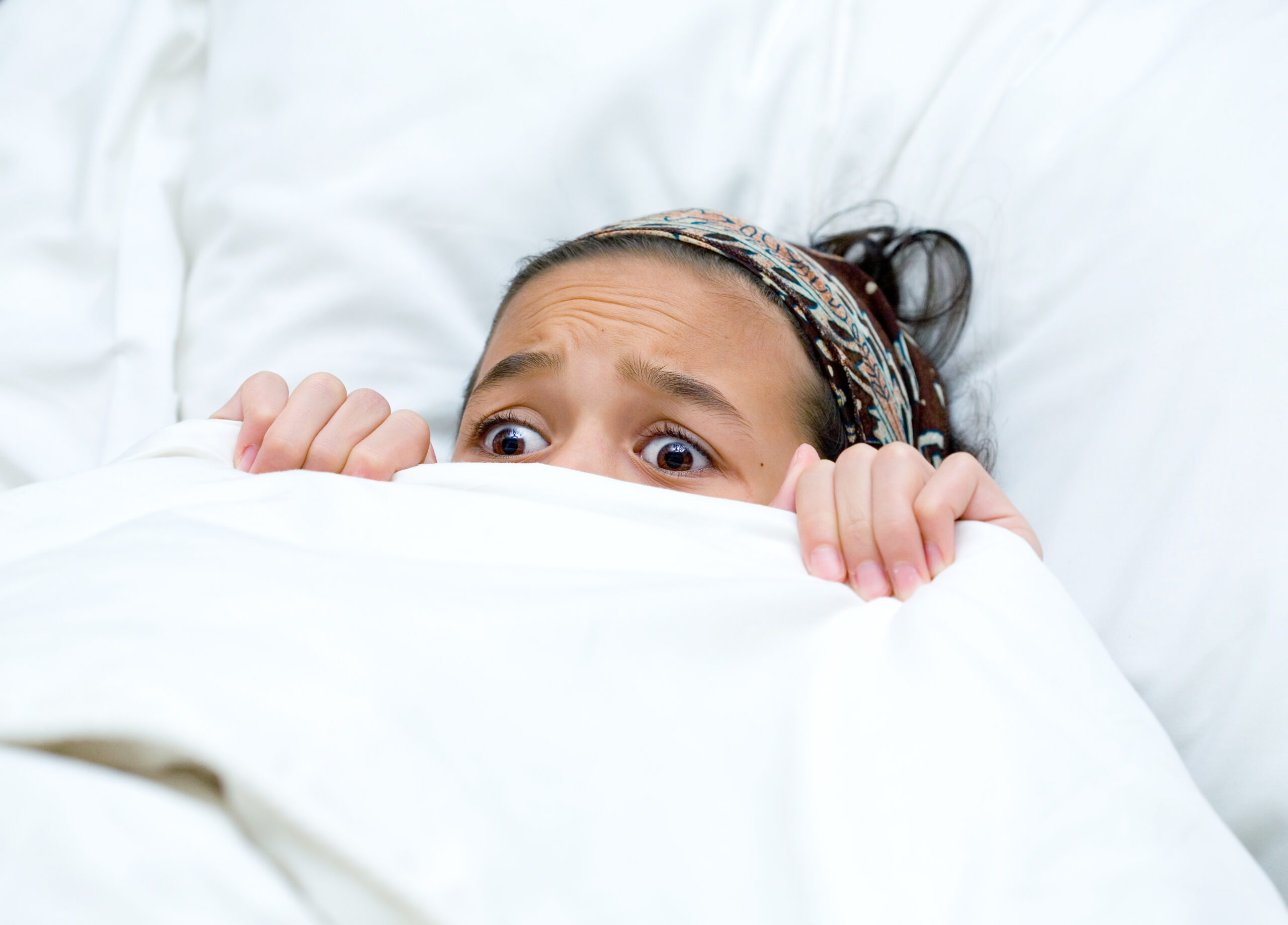Normal, healthy, potty-trained 5-to-8 year-old kids can wet the bed at night.
Nighttime bedwetting simply indicates that a child’s nervous system is still developing. And that’s a good thing! You want them to keep growing and changing. Bedwetting is absolutely not a physical illness or a psychological problem. So, don’t waste any of your precious mental energy worrying about whether your child has a psychological issue or any other pathology. Your child may be stressed about wetting the bed, but stress does not cause primary nocturnal enuresis.
What is Primary Nocturnal Enuresis?
- frequent daytime accidents, pain with urination or other symptoms during the day
- nighttime accidents in a child who has been dry at night for more than 6 months
Instead of stressing about how to get through the night without generating more dirty laundry or worrying about your child being embarrassed, muster all your patience. Put every ounce of effort into consistently sending the message to your child that wetting the bed is no big deal.
Who wets the bed?
Children aren’t physically capable of having a dry night until they have developed certain physical abilities. You wouldn’t expect your 5 year-old to be able to reach the top shelf in the kitchen or pour their own milk from a gallon. They aren’t physically big enough or strong enough to do those things. Urinary continence is no different. Kids nervous systems have to grow in order to reach this milestone and some kids are just “shorter” than others with respect to staying dry at night.
Urinating is a surprisingly complex task involving multiple nervous system pathways. We are born with an involuntary reflex that makes us pee when our bladder gets full. Over time, our body creates an electrical circuit that connects our brain to the muscles surrounding the bladder and that is when we begin to have conscious control to hold our bladder while we walk ourselves to a toilet. The nervous system development and muscle control a child needs to maintain continence during the day are actually completely different than the mechanisms their body must master for them to be dry at night.
Kids are smart and they are naturally going to pick up on your cues if you show any frustration or concern about their bedwetting. So the best thing you can do is explain to your child why this is happening. But first you have to understand it yourself.
First, how does urination happen? Like the latex of a balloon, the bladder stretches as it fills, and when you let go of the balloon, the pressure squeezes all the air out without you doing any work. The bladder “latex” is a type of muscle that you can’t consciously control. When the bladder reaches a specific point of fullness, receptors in the bladder are programmed to spasm.
When a child potty trains they learn control over the muscles that surround the bladder, but the bladder itself is made of involuntary muscles that continue to twitch when they are stretched. Children learn how to suppress these bladder spasms and they also learn to control the opening of the “balloon.” Some kids don’t feel the bladder spasm when they are asleep so they don’t have the opportunity to suppress the feeling. The air comes rushing out of the balloon before they have a chance to pinch the opening. And that air soaks the bed.
Another reason they can’t stay dry at night is because of their hormones. Babies make the same amount of urine around the clock. But older children and adults produce a lot less urine at night because of a hormone surge before bedtime. The brain releases a little burst of anti-diuretic hormone (ADH) at the end of the day and it makes you produce less urine all night. That hormone is affected by the circadian rhythm. Most people start having this ADH burst when they are 6 years-old, but some don’t have it until they are much older. The age at which you begin having the ADH burst is probably under genetic control. So that’s one reason bedwetting runs in families.
This is further proof to your little darling that bedwetting is not their fault. The chemicals in their body are different than other kids and that is not under their control.
Your options for dealing with bedwetting? First, you can choose not to worry about it until your child is 7 or 8 years-old. Particularly if there are other people in your family who have been late to develop nighttime bladder control. There is no shame in wearing waterproof underwear. (Buy pretty, reusable ones if your child is embarrassed about using Pull-Ups).
If they want to go on a sleepover, you have several options. Offer a pseudo-sleepover. They get to stay at their friend’s house until 10pm and then come home to their own bed. You should be doing this as a transition to sleepovers anyway.
Alternatively, go to the sleepover and plan to use every strategy available to help achieve a dry night. This means using DDAVP medication that night, urinating immediately before bed, and lying down for 1-2 hours before going to bed, which releases the extra fluids in the body. And be sure to talk to the friend’s parents about your child’s bedwetting. Oh, and pack extra clothes. Read this article at WebMD for great tips.
Ask yourself if you have done everything you can to let your child know that bedwetting is normal and not their fault and that they will outgrow the problem.
If your child is very bothered by the condition, get professional help. Find a pediatric urologist with a ‘continence clinic’ where the staff will help you make a plan that involves a bed alarm, medications, etc. Behavioral modification therapy is very effective. But recognize that a bed alarm is a tool used in this treatment, and is just one piece of the program. There are several kinds of bed alarms and you have to be very consistent in using them in order to get good results. Don’t make yourself crazy trying different alarms and figuring out how to set the thing up. Get help with this before you start. Read the section on Behavioral Modification in this dense, jargon-filled, but very insightful article.
Enuresis amplifies the craziness of life with kids. But don’t let bedwetting interfere with what should be the most relaxing time of the day. Enjoy bedtime routines with your child. You can manage the lost sleep and piles of laundry with waterproof sheets, lots of hugs and a little medical knowledge.
Read Dr. Greene’s fantastic A-to-Z Guide on Bedwetting to learn everything you need to know about Primary Nocturnal Enuresis.









